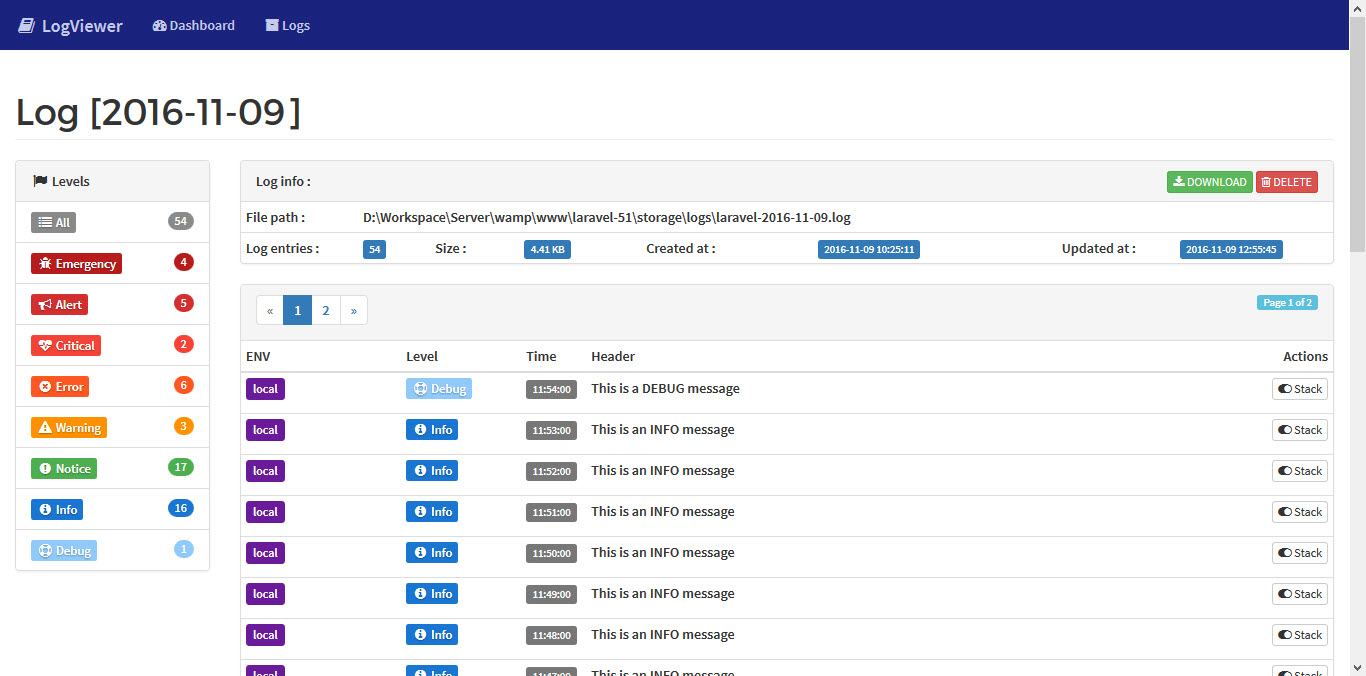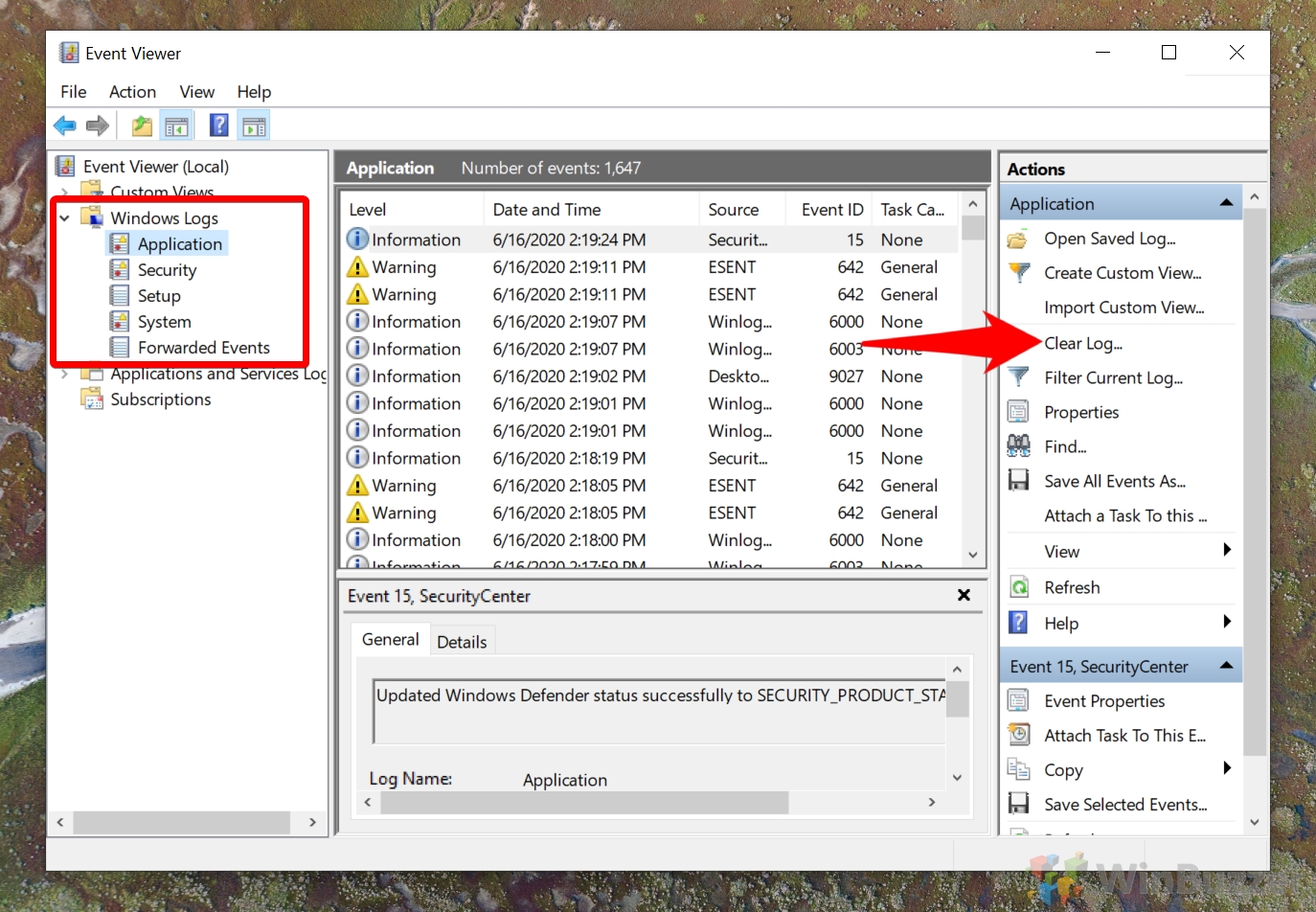

The text becomes much more readable if key elements are highlighted. That’s why LogViewer can detect log format automatically, there is no required configuration, and log representation is close to a text editor representation. It’s important to make the tool as easy to use as possible. So each LogViewer can show events from the entire cluster merged into one view by date.

Each LogViewer instance can connect to other instances and request data located on remote nodes. If we need monitoring logs on more than one node, LogViewer must be run on all nodes. This approach allows displaying huge log files without significant memory consumption. It loads only the part that the user is watching. LogViewer doesn’t load an entire file to the memory. The idea is to run a tiny Web UI on a server that provides access to log files located on the server.
#Log file viewer download#
It doesn’t require additional storage for an index, doesn’t download log files to the local machine, but allows viewing logs on remote servers with nice features like filtering, search, merging events from several log files to one view.
#Log file viewer how to#
I got an idea of how to make a log viewer that has some advantages of log aggregators, but actually, it’s a pure viewer. In some cases, using a log aggregator is overkill. Log aggregator is the right solution for serious production environments, but they require additional resources for storing index and additional configuration to collect logs. If the log weighs about 1G, it’s not usable to download it. The main disadvantage of #1 is the time of downloading logs from a remote machine.

The index allows quick navigation and search.

A log aggregator is a server-based application that collects logs from other applications and stores them to an index. They load log files from remote servers using SFTP or SSH.
#Log file viewer code#
To override the color for one of these, use the editor.tokenColorCustomizations user setting, which was introduced in Visual Studio Code 1.15. Sometimes this will result in colors that may not make complete sense in the log file context (for example ERROR might be green and DEBUG red, when it would be more appropriate to have it the other way around).įor this reason, the extension defines a special set of grammar tokens that can be used to override the colors of the default log items: log.constant log file,Ī status bar item is displayed that indicates how many days, hours, minutes, seconds and milliseconds you have selected.īy default, this extension reuses existing theme colors in order to adapt to the user's preferences. Useful to identity namespace qualified type names, for example. Namespaces (sequences of alphanumeric and dot characters). lines starting with whitespace characters, followed by at, for example: System.NullReferenceException: Object reference not set to an instance of an object.
#Log file viewer mac#
MAC addresses (hex numbers separated by colons or dashes (':', '-') String constants, enclosed in single or double quotes. log files and applies coloring to the different elements in the file, for example:ĭates and times in some culture-specific formats However, if you want additional highlighting, customizable patterns and time duration calculation, then keep reading :-) Features Syntax Highlighting If the default behavior of log files in VS Code is good enough for you, then you don't need this extension. The colors are customizable but by default the current color theme's colors are used.Īn earlier version of the syntax highlighting definition from this extension was included into Visual Studio Code version 1.20. It is based on standard conventions for log4net log files but it's general enough to be useful for other variations of log files as well. A Visual Studio Code extension for adding color highlighting to log files.


 0 kommentar(er)
0 kommentar(er)
